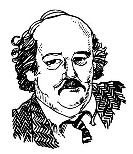
The Legislature’s Special Committee on Judiciary will spend at least two days this summer and fall taking a close look at Kansas Supreme Court decisions on two recent high-profile cases: one that officially declared there is a constitutional right to abortion in Kansas, another which held unconstitutional the Legislature-set cap on noneconomic damages.
Now, that’s not unexpected. Both cases have drawn considerable coverage in recent weeks, so the next obvious move was to put them up for review.
The topic specifically proposed for the 11-legislator summer study is pretty simple: “Review the impact of recent Supreme Court decisions on the citizens of Kansas.”
It’s, of course, not specific, but look for abortion and look for that damage cap to become high-profile issues for the upcoming election-year legislature, when members of the House and Senate all stand for reelection, and there isn’t a hotter issue among Republicans than abortion, and there isn’t a hotter issue for everyone else than insurance rates.
And the seldom-called topic of “impact of recent Supreme Court decisions” falls at a time when along with all House and Senate seats, only two Kansas Supreme Court justices will be on the ballot next November, when they stand for retention to another six-year term on the high court.
Those justices? Two former Democrat Gov. Kathleen Sebelius appointments to the court, Eric Rosen and Lee Johnson—both of whom were on the majorities in the abortion and noneconomic damage cases.
Now, the committee’s hearings may sprawl to other issues, but the keys are abortion and noneconomic damages.
The abortion decision? It essentially rejected a state law that prohibits the most commonly used second-trimester abortion procedure known as dilation and evacuation to the medical world, but as “dismemberment abortion” to antiabortion activists.
House Speaker Ron Ryckman, R-Olathe, and Senate President Susan Wagle, R-Wichita, are hoping that the interim committee meetings and study will eventually lead to a Kansas constitutional amendment that will either prohibit abortion in Kansas or allow lawmakers to specify a range of limits that can be applied to the procedure.
That special committee can ponder just what’s possible in the way of restrictions and keep alive the politically hot issue for the upcoming elections.
The noneconomic damages issues, well, that stretches across a lot of political lines, mostly for businesses which buy liability insurance, and for nearly everyone else in Kansas who drives a car and must carry liability insurance for damages that can be caused in a vehicle accident.
It’s not the easily computable damages—repairing the car or the house that it might crash into which can be assessed by adding up receipts. It’s the effect that a wreck or mistake can have on the lives of those who are victims of a wreck.
Is the damage of a wreck adequately compensated when the car is fixed and the bruises and other injuries healed, or does it have a psychological effect that causes suffering every time a survivor hears tires squeal, or sees a car headed in his/her direction? The Legislature initially figured $250,000 would cover those noneconomic damages, raised it to the current $325,000 and headed to $350,000 by July 1, 2022.
It is that uncapped potential liability that has insurers worried. They can compute what a fixed cap on noneconomic damages will cost them—and their policyholders, plus enough profit to stay in business. But no cap? What should insurance rates be to cover those unlimited damage costs?
That’s the “impact of recent Supreme Court decisions” that will probably show up in the Legislature next session, while lawmakers search for the bullet points on their election brochures that they can aim at voters.
